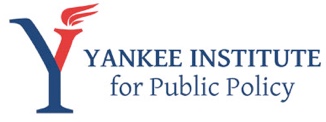
On Monday (April 29), the House passed a bill mandating that specific state agencies allocate 15% of their annual advertising budgets to locally owned media for print or digital ads starting July 1, 2025. This is a decrease from the 50% requirement in the first draft of the bill. The measure passed largely along party lines, 92-53.

According to the bill, only media companies headquartered in Connecticut qualify for the government ad dollars, excluding larger entities such as Hearst, which, despite owning 15 weekly publications in Connecticut, is headquartered in New York.
Rep. Kevin Brown (D-Vernon), one of the bill’s proponents, touting his experience as a high school civics teacher stated that it was his “understanding that this bill would help to prop up some of our local news media outlets who exist to cover local democracy.”
Citing the decline in local media coverage in the last two decades, Rep. Brown said it has been “detrimental to the practice of democracy in our communities,” adding, “It’s the least we can do as a state to prop up our democracy to make sure that the accurate and credible information is there.”
While the civics teacher correctly emphasizes the importance of local media to democracy, he overlooks a key contradiction this bill has with the First Amendment‘s protection of press freedom.
The Founders understood the critical need to keep the press free from government control to ensure a democracy where the government remains accountable to the people. The press acts as a watchdog, tasked with investigating and reporting on governments’ bad actions.
Yet the financial reliance of local media on government funding could result in a reluctance to publish content that might be seen as critical of the government. This dependency may lead to local newspapers disproportionately covering government activities or perspectives, not due to their newsworthiness, but to stay in good graces with their advertiser. Such practices threaten to erode impartiality and compromise editorial independence.
Issues with government-sponsored media are not exclusive to countries like China, where active censorship and stringent control are used to manage the flow of information. Similar concerns are occurring closer to home on the national level.
National Public Radio (NPR) is currently embroiled in a scandal following revelations made last month. The controversy started when an essay by Uri Berliner, a 25-year veteran at NPR, was published in The Free Press, an online media outlet. Berliner alleges that “people at every level of NPR have comfortably coalesced around the progressive worldview.” He was later suspended for the piece and ultimately resigned.
NPR is partially funded through federal dollars funneled to the Corporation for Public Broadcasting, a non-governmental agency. This funding is distributed to public television and radio stations nationwide via “community service grants.” NPR asserts that this federal support is “essential to public radio’s service to the American public.”
In his essay, Berliner claims that NPR was in cahoots with U.S. Rep. Adam Schiff (D-CA), the senior Democrat on the House Intelligence Committee, interviewing him 25 times about supposed collusion between Donald Trump and Russia. Berliner contends that “Schiff’s talking points became the drumbeat of NPR news reports.”
He further noted that once it was determined there was no credible evidence of collusion, “NPR’s coverage was notably sparse, and Russiagate quietly faded from our programming.”
This incident raises significant concerns about the extent to which a media outlet may go to satisfy its benefactors, signaling a cautionary tale for lawmakers.
Local news is vital in keeping residents informed about what is happening in their communities, holding the government accountable and ensuring transparency. Additionally, it boosts community engagement by covering events relevant to residents, supporting local businesses, and fostering an informed citizenship.
However, it is not the government’s responsibility to rescue local news as its involvement might compromise the journalistic independence essential for effective reporting. Rather, solutions like community support, non-governmental funding and innovative business models should be pursued to maintain the viability of local media.
The bill remains under consideration in the Senate, with a vote date yet to be scheduled.
![]()

